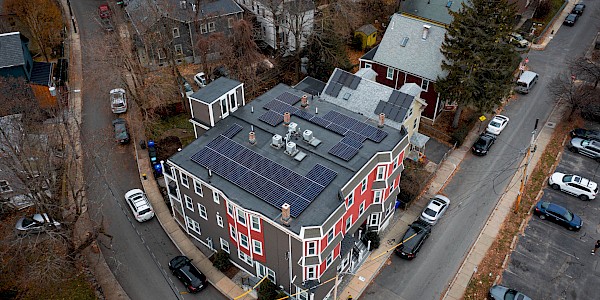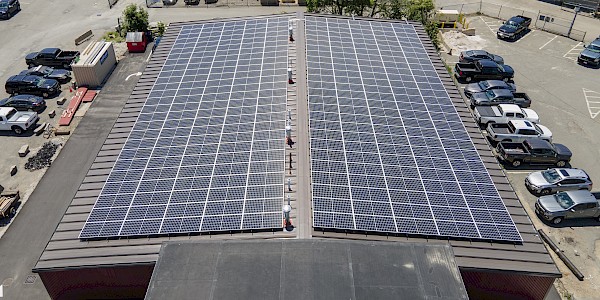Region’s Solar Firms Take Dim View of Tariff
Published on 1/25/18 @ 10:50pm
The cost of solar panels is expected to rise under new Trump administration tariffs, but local installers think the move won’t significantly deter homeowners from going green.
“We do a lot of residential (installations). It’s not going to be a big impact,” said Mike Kelley, president of Bellingham-based Mass Renewables. “A small uptick in price, really, is not going to affect the bottom line much at all.”
Companies such as his will absorb some of the increased cost and panels represent only part of the cost to install a system, Kelley said.
Foreign-manufactured solar panels and cells will generally face a 30 percent tariff under a measure beginning Feb. 7 that President Donald Trump recently approved. The rate will decline before phasing out after four years. Trump’s decision comes after the U.S. International Trade Commission recommended he take action.
Suniva Inc., which filed for bankruptcy protection in April, and the U.S. subsidiary of Germany’s SolarWorld sought tariffs. They pointed to a decline in U.S. solar manufacturing as prices fell amid a flood of imported solar panels.
But, solar installers and manufacturers of other equipment used to run solar-power systems worried the move will lead to higher prices and a drop in demand. Locally, some companies have purchased supplies of panels at pre-tariff pricesto keep costs down for customers.
The tariff decision is not as “bad” as what Suniva and SolarWorld had sought, according to the Solar Energy Industries Association.
“While we believe the decision will be significantly harmful to our industry and the economy, we appreciate that the president and the administration listened to our arguments,” Abigail Ross Hopper, the association’s president and CEO, said in a statement. “Our industry will emerge from this. The case for solar energy is just too strong to be held down for long, but the severe near-term impacts of these tariffs are unfortunate and avoidable.”
The association, which represents installation companies, estimated billions of dollars of solar investment will be delayed or canceled, leading to the loss of 23,000 jobs this year.
Representatives of several local companies said they did not foresee a major effect on their businesses.
“We think it’s a step in the wrong direction,” said Natalie Holtgrefe, director of marketing at Woburn-based Boston Solar. “It’s going to definitely impact solar jobs as a whole.”
The biggest effect will likely be on large-scale projects that need many more panels than residential applications like those Boston Solar does, said Holtgrefe.
The cost of panels makes up a larger percentage of the overall cost to install large projects such as solar farms, so those projects will be most affected, said Matt Arner, president of SolarFlair Energy in Ashland.
“Overall, obviously, it’s bad news for consumers having a higher price for solar panels,” said Arner, whose company focuses on residential and smaller commercial projects.
Changing state incentives may have a greater effect on residential projects, Holtgrefe said.
EnergySage, an online comparison-shopping marketplace for solar, estimates a homeowner might pay $500 to $1,000 more for an installation because of Trump’s action.
Going solar still makes financial sense. But, a small increase in the cost of a solar system may make it harder for lower income residents to install systems at a time when declining prices have opened up the technology to them, Kelley said.
“I was against that whole tariff just because of the way the solar industry has been going the last seven or eight years,” he said. “Prices have been coming down.”



